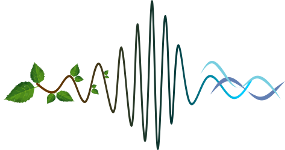In the face of accelerated climate change, monitoring biodiversity has become a critical task for ecologists. Habitat loss is occurring at an alarming rate both in terrestrial and marine ecosystems, resulting in endangerment and extinction of species up to 1,000 times faster than natural rates. However, traditional biodiversity measurements are logistically and financially difficult, making biodiversity monitoring a challenging obstacle to conservation efforts. In terrestrial environments, “soundscape ecology” has recently emerged as a potential solution to these problems, providing a mechanism for measuring biodiversity at various temporal and spatial scales using acoustic signatures. Several acoustic diversity indices have proven to be useful indicators of biodiversity in a variety of landscapes. Thus far, this technique has not been extended to marine environments. What we do know in the marine environment is that different habitats have specific sound signatures both in temperate and tropical waters. For example, studies have shown that temperate reefs from within a marine reserve have a different spectral signature compared to reefs outside the reserve. Also, a fringing reef from a tropical Island has a different spectral signature to those of the lagoon and back reefs. In this presentation I will highlight the research potential of using acoustics to monitor marine biodiversity and what is required for this field to progress.
|
|
|
|
Tuesday
17
Soundscape I
› 14:00 - 14:15 (15min) › Rouelle Conference Hall
“Marine Soundscape Ecology”: a new and emerging field.
1 : University of Auckland PO Box 349, Warkworth, 0941 -
New Zealand
|
| Online user: 2 | RSS Feed |

|

 PDF version
PDF version